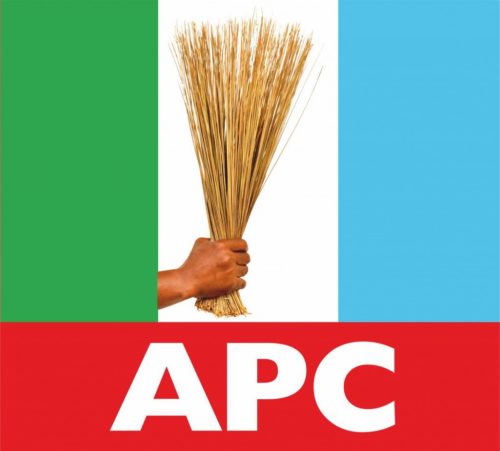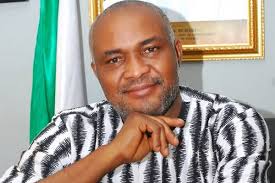Politics
Gov Soludo Rolls Out Palliatives To 59,000 Citizens
The Anambra State government has announced that up to 59,000 citizens would be benefiting from her palliative package to cushion the effects of the economic hardship ravaging the land, which is generally believe to the attributable to the removal of subsidy on Premium Motor Spirit, aka, petrol.
Governor, Anambra State, Chukwuma Soludo made this known in a statement released on Monday at Awka.
Biztellers reports that the recipients would be made up of pensioners and public servants, as well as those in the employ of the 21 Local Governments of the State.
Details of the package, from the former governor of the Central Bank of Nigeria (CBN) led administration include N12,000 monthly payments (to be added to regular emoluments) for the period of September to December 2023.
He maintained that the government’s gesture was in addition to a 10 percent salary increase, which the state had been paying since January 2023 as part of its “foresighted” response to the rising inflation.
Gov Soludo’s Press Secretary, Christian Aburime, clarified that ‘disruptive change’, especially the removal of subsidy on petrol, was long overdue, but would not be without certain hardships on everyone resident in Nigeria.
Consequently, Gov Soludo, acknowledged that President Bola Ahmed Tinubu already put in place an agenda of palliatives as the response of the Federal Government towards alleviating the effect of the subsidy removal.
What he failed to aver clearly in the statement is whether Anambra State had received her share of the FG’s palliative and if the package being unveiled formed part of it, even though he assured that the state would be partnering with the FG.
In addition, Gov Soludo assured that the state government would continue to clear the backlog of gratuity and pension of her pensioners.
Under this palliative scheme also, the state will be distributing rice to over 300,000 households in the coming weeks across the 326 wards of Anambra.
While appealing to landlords to show empathy and avoid arbitrary increment of rents, he assured that micro businesses would be encouraged to take cheap loans to boost their businesses.
He said, “Nigeria is undergoing fundamental re-setting of the macroeconomic framework. The long overdue disruptive change, especially the removal of subsidy on PMS and reduction of distortions in the exchange rate, comes with certain hardships on all the residents of Nigeria.
“Governments at all levels in Nigeria have shown a keen commitment to ameliorate the consequent short-term effects of the policy change on livelihoods.
“The President, Bola Tinubu, has rolled out an agenda of palliatives as the response of the Federal Government. We support the FGN agenda and expect to partner with the Federal Government to ensure that Anambra residents benefit maximally from the federal programmes.
“Ours is a government on the foundation of the All Progressives Grand Alliance. We are progressives, and the welfare of the ordinary Nigerians, especially the poor and vulnerable, remains our primary focus.
“In our 2024 budget, we shall roll out a more comprehensive agenda to address the medium to longer-term issues that will help to smoothen the path for all our residents, and ensure that everyone shares in our broad agenda of building a livable and prosperous homeland.
“In the meantime and over the remaining four months of the year (September – December 2023) as well as within the context of our 2023 budget framework, we are rolling out a few immediate and medium-term measures.
“Our response recognises that the subsidy removal affects all citizens, especially millions of the unemployed and underemployed youths and vulnerable segments of the population. Our interim response reflects the need to target the total population.
“In our foresighted response to the rising inflation, our government had increased the salaries of all public servants by 10 per cent effective January 2023. We have been paying the 10 per cent adjustment since January 2023.
“In addition to the salary increase, we will be paying every pensioner and public servant in the employment of the Anambra State Government and the 21 LGAs (approximately 59,000 persons) for the period September 2023 to December 2023, a monthly flat non-taxable cash award of N12,000. This is to augment their monthly take-home.”
He laid emphasis on exemption from taxation of the economically vulnerable, indluding hawkers, wheelbarrow and truck pushers, vulcanizers, artisans, okada drivers, petty traders with capital of less than N100,000.
Gov Soludo also stated that attention would be paid to education with a view to making it even more affordable in the state from the 2023-2024 academic session.
“We are reviewing the plethora of other levies, fees, and charges in these schools. Before schools resume in September 2023, we shall make further announcements to sanitize the system and reduce the burden on our pupils/students and their sponsors.
“We call on the landlords to show empathy to their tenants at this challenging moment and consider easier options for rent payment.
“Still on initiative to reduce the cost of transportation for the larger segment of Ndi Anambra, we will be applying to purchase many of the CNG-fueled buses to be provided by the Federal Government for intra-state transportation. The aim is to reduce the cost of transportation within Anambra.
“We recently distributed a total of 1.1 million oil palm and coconut high-yielding seedlings to over 100,000 households. We plan to sustain the distribution of one million seedlings per annum over several years in continuation of our revolution to create a new palm-coconut green/industrial ecosystem that will guarantee 500,000 – 1,000,000 households earning N1.5m to N3m per annum, thereby lifting them out of poverty, create wealth and earn foreign exchange for Nigeria.
“We are proposing a revolving loan scheme at near-zero interest rate. We are targeting over 100,000 micro businesses.
“We are determined to collaborate with the Federal Government to ensure that Anambra residents benefit maximally from the myriad of palliatives being rolled out by Mr. President, including; Provide our updated Social Register for Anambra residents to benefit from the FGN cash transfer — apply to attract a conditional grant of N50,000 to at least 1,300 nano business owners in each of the 21 LGAs of the State- support MSME and Startups in Anambra to apply for N500,000 – N1million soft loan each at 9% p.a. and repayable over a period of 36 months.
“In collaboration with the Organised Private Sector in the State, apply to obtain the N1bn soft loan each at 9% pa and repayable over 5 years available to 75 manufacturers in the country; – the N100 billion CBN commercial agricultural loan– the Gas conversion scheme,” Gov Soludo added.
Politics
Edo LP Senator, Neda Imasuen Set To Join APC
The Labour Party (LP) in Edo State may be on the verge of losing another key figure, as Senator Neda Imasuen, representing Edo South Senatorial District, is reportedly considering a defection to the All Progressives Congress (APC).
Party insiders and political observers say the senator is under increasing pressure from APC leaders to switch allegiance, with recent developments pointing toward an imminent move.
Imasuen, who chairs the Senate Committee on Public Petitions, Ethics and Privileges, recently stated that the Supreme Court’s verdict on the LP crisis might have come too late to prevent the damage already done, which has resulted in multiple defections across the country.
READ MORE: Okpebholo Inspects Agro, Road Projects In Edo Central
The senator is said to have a close working relationship with several prominent APC figures in Edo State and has been seen at various public functions alongside them.
Notably, he once served as a senior legislative aide to his predecessor, Senator Matthew Urhoghide—now an APC member—and also acted as Director General of the APC Campaign Council for the upcoming September 21 governorship election.
Further fueling speculation, Hon. Eugene Utubor, Special Adviser to Governor Monday Okpebholo on Political Mobilisation and Engagement, visited the senator on Tuesday night to lobby him into joining the APC and supporting the governor’s developmental drive.
Sources privy to the lengthy meeting described it as productive.
In a statement following the visit, Imasuen praised Governor Okpebholo’s leadership, saying, “The governor has done remarkably well in such a short time. It is crucial that we come together to ensure the success of his vision for our people. Every well-meaning Edo citizen is encouraged to rally around the governor as he works diligently for our collective progress.”
While no official defection has been announced, Imasuen’s words and actions suggest his exit from the Labour Party could be only a matter of time.
Politics
APC Sets N5m Nomination Fee For Chairmanship Aspirants In Lagos LG Polls

The All Progressives Congress (APC) in Lagos State has released the official fees and guidelines for aspirants contesting in the upcoming local government elections scheduled for July 12.
According to the document, jointly signed by the party’s State Chairman, Pastor Cornelius Ojelabi, and Secretary, Dr. Adeola Jokomba, chairmanship aspirants will be required to pay a nomination fee of N5 million, along with an administrative fee of N500,000.
In a bid to encourage female participation in the electoral process, the APC reduced the chairmanship nomination fee for women to N2.5 million, though the administrative fee remains at N500,000.
READ ALSO: Okpebholo Welcomes Ikpea To APC, Expects More Defectors
Similarly, the party introduced incentives for young aspirants under the age of 40, offering them a 50% discount on the nomination fee while maintaining the administrative fee.
For aspirants living with disabilities, the party completely waived the nomination fee and fixed the administrative fee at N250,000.
Aspirants seeking councillorship positions will also pay fees, with male contenders expected to pay N1 million for the nomination form and N100,000 as an administrative fee.
Female aspirants will pay N250,000 for the nomination form, while the administrative fee remains the same.
The APC noted that youth aspirants applying for councillorship positions would also receive a 50% discount on their nomination fee, although they will still be expected to pay the full administrative fee.
For persons living with disabilities contesting for councillorship seats, the nomination form will be issued at no cost, but an administrative fee of N50,000 will apply.
The party also clarified that no separate fee will be charged for vice chairmanship positions.
“These fees shall be paid by way of bank draft in favour of the All Progressives Congress, Lagos State, State,” the guidelines stated.
Beyond the financial requirements, the APC outlined other conditions for eligibility. Chairmanship aspirants are expected to be at least 30 years old, while councillorship hopefuls must have attained the age of 25.
Academic qualifications require a minimum of a school certificate or its equivalent, with higher qualifications considered an added advantage.
The guidelines also set out the endorsement process for aspirants. For chairmanship hopefuls, five registered party members who are voters within the aspirant’s ward, local government or LCDA must endorse their nomination forms.
Councillorship aspirants will need the signatures of 20 registered party members from their wards.
The party emphasized the need for all aspirants to prove their loyalty to the APC and show active involvement in party activities.
Each candidate must also sign the party’s Code of Conduct.
“Only aspirants cleared by the Screening Committee shall be eligible to stand for election at the party’s primaries,” the guidelines noted.
In line with constitutional provisions, the APC further stressed that any party officeholder intending to contest must resign their position at least 30 days before the election or the party primary.
“All aspirants shall comply with constitutional provisions and requirements applicable to the public office they seek to contest for,” the party added.
Politics
Lad Who Stood In Front Of Obi’s Convoy Apprehended For Street Fighting – Police

The travails of Alabi Quadri, the chap who became famous by his rousing reception in front of the Labour Party’s (LP) presidential candidate Peter Obi’s convoy during Nigeria’s 2023 election has been traced to a violent street fight in the Amukoko area of Lagos.
According to the Lagos State Police Command, the 18-year-old was arrested and charged to court after being linked to street violence in January.
This was disclosed in a statement on its X handle signed by the command’s Public Relations Officer, CSP Benjamin Hundeyin, on Saturday.
According to Hundeyin, the incident happened on January 22 when a group of youths clashed in a violent street fight that caused panic in the community.
He added that several people were injured, while public and private property were damaged.
Hundeyin asserted that some innocent passersby were robbed during the chaos.
ALSO READ: Edo Prescribes Death By Hanging For Kidnappers
He wrote, “The Lagos State Police Command is aware of public concerns surrounding the case of Alabi Quadri, an 18-year-old who was remanded to correctional service following his involvement in violent attacks, public disturbance, causing extensive damage to public and private properties, and injuries to persons standing by in the Amukoko area of Lagos State earlier this year.
“On January 22, 2025 to be precise, a serious breach of public peace and extensive damage to public and private properties occurred in Amukoko when groups of youths engaged in violent confrontations that escalated into street fights for all, causing widespread violence, panic, and chaos.
“During the chaos, a number of innocent passersby were reported to have been robbed and injured.”
These, the Police spokesman maintained made officers quickly swing into the matter, with the aid of community members who witnessed the event offering useful information.
He added that victims of the robbery also gave statements and identified some of those involved.
He explained further that based on the investigation, Quadri and four others were arrested and taken to court.
He noted that the court then ordered that they be kept in custody while the legal process continues.
“In response, police officers of the command immediately launched an investigation into the incident.
“More crucial information was provided by members of the community, some of whom witnessed the incident and recognised several individuals involved.
“Victims of the robbery also came forward to give statements and positively identified the perpetrators. Following a thorough and transparent investigation, Alabi Quadri and four others were arrested and charged to court in connection with the crime.
“The suspects were remanded by the court to a correctional facility pending the conclusion of legal proceedings in the matter.
“The Lagos State Police Command undoubtedly reiterates its commitment to upholding the rule of law to ensure justice in all matters and also ensuring the safety and security of all residents,” Hundeyin added.
The command expressed commitment to justice and safety for all residents, urging the public to remain calm and allow the courts to decide the case.
“All police actions taken in this case have been in the laid-down processes and in accordance with due process, procedures, and based on credible evidence gathered during the investigation.
“We urge the public to remain calm and allow the judicial process to take its course and be fully exhausted in the case.
“The command remains open to engaging with the general public, opinion groups, and community stakeholders to transparently clarify every concern and ensure justice is served fairly and transparently.
“It’s statutory procedure in the Criminal Justice System and codes that police actions terminate where matters are taken to court.
“Members of the general public in Lagos State are enjoined to stay calm and peaceful, and allow peace to reign to ensure justice for all,” it added.
Recall that Quadri was freed on Thursday by a Magistrate Court in Apapa following legal advice from the Lagos State Director of Public Prosecutions, which found no evidence to support the armed robbery charge against him.
His lawyer, Inibehe Effiong, said Alabi’s arrest and detention were part of a “diabolical frame-up” by two local thugs known in the Amukoko area as Lege and Baba Waris.
According to Effiong, the two men allegedly kidnapped Quadri near his home and handed him over to the police, claiming he was part of a street fight.
Effiong maintained that he had been receiving threats from the same individuals since 2023 because he received donations from supporters of Obi.
The family was reportedly pressured by some community leaders to buy a cow and host a feast to make peace.
Although the case was initially said to be about a street fight, the police charged Quadri with armed robbery on January 26.
He was sent to prison along with four adults he didn’t know.
Quadri’s age was also wrongly recorded as 18, according to Effiong.





















